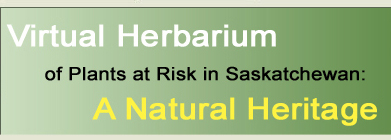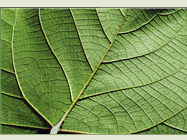
|

|

|

|

|

|

|
|
|
|
|
|
| Celastrus scandens L. | Species Image Gallery (opens in a new window) |
||||||
| TAXONOMY | |||||||
| Family: | Celastraceae | ||||||
| Genus: | Celastrus | ||||||
| Species Synonyms: | none | ||||||
| Common Names: | climbing bittersweet staffvine waxwork American bittersweet |
||||||
| DISTRIBUTION | |||||||
| Canada: | southeastern Saskatchewan – New Brunswick | ||||||
| Saskatchewan: | southeastern Saskatchewan; Souris River Valley | ||||||
| Ecoregion: | Moist Mixed Grassland | ||||||
| HABITAT | |||||||
| Saskatchewan: | moist, north or east-facing, shrubby ravine slopes | ||||||
| Canada: | Acer negundo, Amelanchier alnifolia, Atriplex
argentea, Chenopodium album, Fraxinus sp., Populus sp., Prunus pensylvanica, Prunus virginiana, Ulmus americana |
||||||
| RARITY STATUS | |||||||
| Provincial
Status According to Harms (2003): |
Endangered |
||||||
| Nature Conservancy Status: | G5 S1 |
||||||
| Saskatchewan
Species at Risk Status: |
None |
||||||
| COSEWIC Status: | None |
||||||
| Celastrus scandens is endangered in Saskatchewan because it is extremely rare and is highly regionally restricted in the province. Most local populations are small and are threatened by possible planned developments. In the past, there has been limited horticultural trade of this species from Saskatchewan, which may have implications for genetic diversity. | |||||||
| SPECIES DESCRIPTION | |||||||
| Height: | to 5 m high (climbing on other species); stems to 18 m long | ||||||
| Roots: | taproot; spread by root suckers | ||||||
| Stems: | perennial, shrubby vine, to 2.5 cm in diameter, bark dark brown to reddish or gray, smooth or slightly ridged, pith white | ||||||
| Leaves: | alternate, petiolate, axillary bud 1; stipules 0.6 mm, linear, membranous, early deciduous; blades 1 – 3 cm long, ovate to orbicular to broadly elliptic, base acute to rounded, apex attenuate to rounded, margin serrate to entire | ||||||
| Leaflets: | opposite, sessile or nearly so, 11 - 23 (9 - 13 in SK), lanceolate, acute to acuminate tip, acute to obtuse base, glabrous, serrate margins | ||||||
| Inflorescence: | raceme terminal, 4 – 8-flowered, to 10 cm long, mixed with staminate, pistillate and perfect flowers; pedicels jointed | ||||||
| Flowers: | bracts 4 – 5, small; sepals 4 – 5, rounded, apex apiculate; petals 4 – 5, regular, greenish; stamens 5; stigma 3-lobed | ||||||
| Fruits: | capsules approximately 8 mm broad, spherical, 3-valved, reddish; seeds 3 – 6, yellow to reddish brown, seeds embedded in red, fleshy aril | ||||||
| |||||||